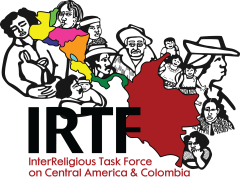Mira director Laura Carlsen presented the following on the impact of the Monroe doctrine in Mexico and Central American and we can move beyond the framework of U.S. hegemony at the Congressional briefing “Two Hundred Years is Enough!: Moving Past the Monroe Doctrine Toward a New Era in US-Latin American Relations”. The briefing was held in the House Rayburn Building Dec. 12, with opening remarks from Congressional representatives, Chuy Garca, Nydia Velázquez and Greg Casar.
For decades, certainly since Plan Colombia, US security policy in Mexico and Central America has been focused on the war on drugs–with devastating results for those countries and for the United States. The drug war has been a primary instrument of US hegemony in the region.
We’ve been tracking this closely in Mexico since the 2008 Merida Initiative promoted the drug war proclaimed by then-president Felipe Calderon. The Merida Initiative is a case study on the disaster of prohibition and supply-side drug enforcement. The $3.3 billion dollars spent in US public funds just in Mexico has resulted in levels of violence we never imagined. Homicides shot up, and when the homicide rate became a political liability, organized crime and corrupt security forces began hiding bodies, creating a terrible limbo for the growing number of families of the disappeared. The families organized one of the nation’s largest grassroots movements, led by mothers, searching for the more than 110,000 disappeared persons on record. They’ve repeatedly called on the US to end the drug war.
The Merida Initiative, like the Monroe Doctrine, has been declared dead on several occasions and, despite its failure, always comes back. The Initiative changed names in late 2021 to the Bicentennial Framework, supposedly with greater emphasis on reducing violence. But the basic DEA model of the kingpin strategy remains in place. Lately, with fentanyl there has been more pressure on the Lopez Obrador administration to use military forces to block supply to the multibillion-dollar US market.
At Mira: Feminisms and Democracies we use a feminist international relations perspective to analyze dynamics of violence and public policy. It’s well-documented why the drug war model causes increased violence. Security forces assassinate or arrest a cartel leader. A turf war with other cartels ensues to take control of the route or production area, and/or the first cartel fragments into smaller groups that maintain territorial control through armed occupation. These smaller groups move beyond drug trafficking into extortion and human slavery, posing a far greater risk to civilians. Due to the dynamics of a macho brute force mentality among both the organized crime and security forces, in addition to more generalized violence there has been a sharp rise in femicides and sexual abuse.
in the US, resources, policies and rhetoric have been misplaced on foreign supply in an opium crisis detonated by domestic prescription drugs, rather than attending to the real causes of national demand and overdose deaths. This only generates violence, while failing to control flows of illicit drugs or reduce mortality rates.
There is no time and nowhere in the world where supply-side strategies have worked for anything other than the enrichment of arms dealers and drug traffickers and the perpetuation of DEA funding.
Blaming Mexico or any other foreign country for overdose deaths in the United States is not only a flawed analysis of cause, but a xenophobic smokescreen for really solving the tragic crisis of loss of life.
We’ve heard the extreme proposals from Republican candidates, including launching US missiles at labs south of the border or invading Mexico (again) and we can dismiss them as fringe grandstanding, but they’re being fed by Biden and other Democrats pressuring Mexico to crack down, and by this continued DEA-led supply-side policy that pretends to locate the source of the problem—and, ludicrously, the solution– outside US borders.
There is no time and nowhere in the world where supply-side strategies have worked for anything other than the enrichment of arms dealers and drug traffickers and the perpetuation of DEA funding.
Effective foreign policy stems from solid, facts-based domestic policy: we can decrease violence by abandoning the punitive, military-police model and building a new paradigm based on human health and well-being on both sides of the border.
HONDURAS:
The Central American countries have also suffered increased violence from the US-backed drug war, anticrime and anti-immigration programs that that have drawn military forces or militarized police forces, such as Honduras’s, into domestic policing. Across the board this has led to a rise in extrajudicial executions, civilian deaths, human rights violations, use of military forces to repress social movements and gender-based-violence.
Honduras deserves special mention since it provides lessons, new challenges and an excellent opportunity to unravel the damage done by previous US policy.
The US government has a long history of intervention in Honduras. The Obama administration denounced the 2009 military coup there, but then maneuvered behind the scenes to prevent the return of the constitutional president, Manuel Zelaya. With U.S. backing, the coup regime then staged spurious elections that ushered in a series of governments considered narco-dictatorships, including two terms of Juan Orlando Hernandez who will be tried in New York on drug trafficking and firearms charges that have also implicated many in his National Party.
These governments had US support s they converted Honduras into the homicide capital of the world and a major drug trafficking hub, despite the fact that much of U.S. aid was supposedly for counternarcotics.
The democratic election of President Xiomara Castro with broad popular support marked a new era. The government that took office in 2022 is making serious efforts at restoring rule of law, but has faced resistance from elements of the old regime still in power, especially in the judiciary and legislative branches.
There is grave concern over the openly interventionist actions of US Ambassador Laura Dogu in support of elements of the old regime and corrupt business class. She has publicly spoken against efforts to clean up the notoriously corrupt Attorney General’s office, criticized reform of fraudulent contracts entered into under the narco-dictatorship, especially in energy, and supported the notorious economic development and employment zones, or ZEDES, that were repealed in 2022 as unconstitutional, even going so far as to indicate support for investors who have filed an 11 billion-dollar lawsuit against the Honduran government for protecting its national laws and sovereignty that could leave the entire nation destitute.
These zones essentially cede Honduran resources and territory to transnational corporations and are widely opposed as an affront to sovereignty. They’re a source of violent repression against local communities (especially Afrohonduran and Indigenous) that oppose them.
Another attack occurred just a few days ago, prompting Afro-indigenous leader Miriam Miranda to tweet: “With 200 years of the Monroe Doctrine, the Black community of Crawfish Rock is under siege by US investors in the PROSPERA Zede, which has generated a crisis and now an attack on our fellow community member Vanessa Cardenas. Prospera was never consulted with the community.” The lack of consultation is a clear violation of national and international law. and the violence caused by the illegal investments continues to affect local communities.
Last November 29–International Day of Women Human Rights Defenders—the State Dept issued a statement lauding their work, while Honduran groups denounced the attacks on women defenders, including on Miriam herself and the 2016 assassination of the feminist indigenous environmental leader Berta Caceres. But policies that strengthen abusive security forces and foreign investment that denies human rights, indigenous and women’s rights in particular, virtually guarantees further attacks.
The US government is actively obstructing efforts in Honduras to eliminate corruption, rollback illegal land grabs, and reform the legal system, including the criminal and tax codes. The result is greater instability, impunity and poverty with the subsequent rise of out-migration. Contradictory US policies create greater human suffering and stymie national efforts at reform.
Juan talked about immigration so I´ll just describe what that looks like south of the border. It doesn’t look like a “surge” or an “invasion”. It looks like the failure of states to provide for vulnerable populations and a human tragedy of epic proportions.
Health officials in Mexico report that as many as 6 in 10 women, many fleeing sexual abuse, will be raped en route. We don’t even know the number of disappeared and assassinated migrants. Whole families with nothing more than hope in their pockets are piling up in dangerous border towns.
Democrats and republicans alike have been calling for stricter measures to block immigration and asylum. Pulling immigration into the militarized border-control model further criminalizes migrants, enriches organized crime and encourages government corruption.
In fact, the more iron-fist immigration policy becomes a priority for US foreign policy toward the region, the more it fails—it’s failing the US economy where jobs go vacant, it is failing US communities torn apart by persecution and deportation, and it is failing by all measures of human decency.
I have a minute left for Guatemala: Just a month away from the inauguration of president-elect Bernardo Arevalo, Guatemala faces a political crisis due to the desperate attempts of the group in power, known as “the pact of the corrupt”, to stay in power. The Attorney General’s office has annulled the election despite the fact that their arguments are bogus and they don’t have the jurisdiction to do so. The electoral tribunal is under attack for defending the elections and thousands of Guatemalans are protesting in the streets. The US State Department has so far stood firm in calling for respect for the election results and idetifying some of the ringleaders as “corrupt and antideocratic agnetts”. But we must be vigilant. The Guatemalan people deserve no less.
Recommendations for moving beyond the Monroe Doctrine:
1. Full investigation into the international activities of the DEA, their impact on overall objectives and their consequences. The GAO has repeatedly called for benchmarks and evaluation. The DEA evaluated itself this year, and recognized “critical incidents”, and problems with compliance, but did not evaluate the effectiveness of its model, the dangerous use of criminal informants, or the lack of internal monitoring. “Critical incidents” include the Ajuas killing of 4 agent, including a pregnant woman and schoolboy, by a Honduran officers and DEA agents in 2012.
2. Full review and reform of drug war policies at home and in the hemisphere.
3. Anti-militarism measures including controlling arms sales, arms smuggling and military-police aid to the region; encouraging civilian policing according to international human rights standards; and acknowledging the human cost of fighting violence with violence.
4. Non-interference in Honduran efforts to rout out corruption and restore rule of law
5. Immigration reform with respect for human rights: Even without the elusive comprehensive immigration reform that we need, legalizing working members of communities, respecting the right to asylum, complying with children’s right to live with their parents through family reunification, providing work with full labor rights, and opening up paths for legal immigration and citizenship are doable and urgent.


